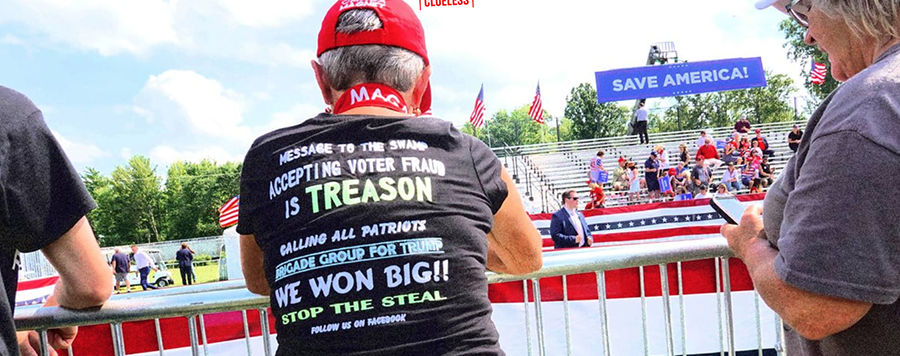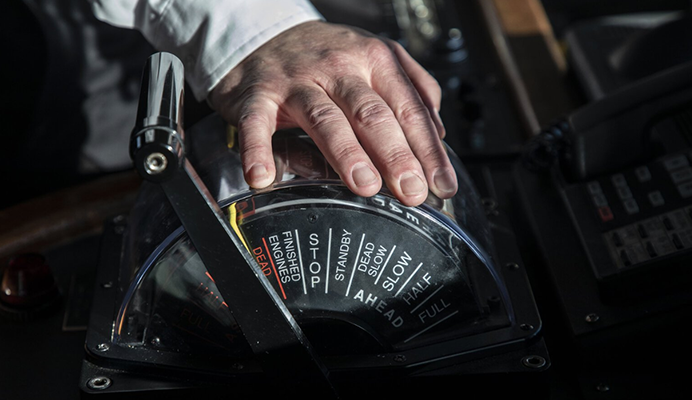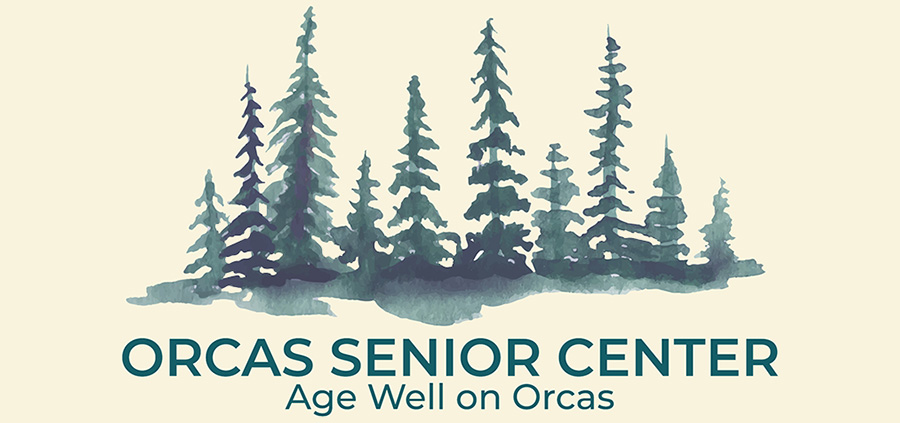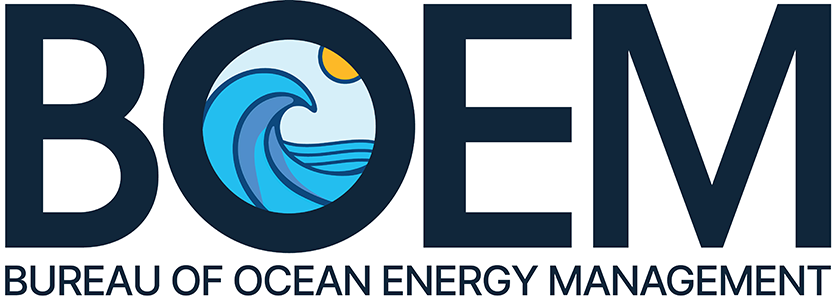Six months after the insurrection it triggered, it’s clear that the stolen-election nonsense is just a drop in a tidal wave of bullshit.
||| FROM THE DAILY BEAST |||
How could so many Americans believe in “the Big Lie?” We see the numbers and we shake our heads. Poll after poll shows that one third of all of us believe the 2020 election was stolen from Donald Trump. Even though the matter has been adjudicated in scores of courts. Even though not a single scintilla of evidence exists that the election was anything but fair.
Six months after the attack on the Capitol triggered by that lie, commentators, political scientists, and families around the dinner table still struggle to come to grips with perverse reality. It is natural to want to understand how we got here. The fate of our democracy turns on not just what our electorate believes but why they believe it. Why are a third of us such gullible rubes?
It’s a question serious enough that it deserves a straight answer, even if that answer makes us uncomfortable. And I warn you, dear reader, the answer will make you uncomfortable. So, if you are tender-minded or sensitive to self-criticism, or a credulous stooge yourself, this might be a good time to stop reading.
Because even the most modest amount of analysis and introspection will reveal that buying into the nonsense peddled by the former president and his clown college of cronies is not an aberration, not due to some momentary lapse on the part of the American electorate. We were raised on lies—including many lies that are much, much bigger than the big one that troubles us today.
That’s the problem. We are as a society—and by “we” I mean virtually all of us on the planet —brought up to believe howling absurdities, ridiculous impossibilities, and insupportable malarkey from our very first moments on Earth. We have massive lie-delivery systems that are the core institutions of our society. And we have created cultural barriers to even questioning those fabrications which are most deserving of skeptical scrutiny. For example, we regularly label as sacred those ideas that are least able to stand up to scrutiny. (Heck, we have folks in our society who can’t even handle the idea that the history we teach our kids might actually be based on what happened, you know, back in the past.)
Our parents lie to us. Our churches, synagogues, and mosques lie to us. Our schools lie to us. Hollywood lies to us. Madison Avenue lies to us. The media lies to us. Our leaders lie to us. Our friends lie to us. (They do. Going to the gym couldn’t hurt.)
What is more the lies they offer are not always big lies (e.g. Buying a particular brand of beer will not make you more attractive) while some are just gross oversimplifications (e.g. The Founding Fathers did a lot of good… but they were not the figures carved out of marble we were sold for years). Some have a seed of truth within them but are gross distortions (e.g. Columbus did not discover America). And some of the time we invite the lies because they open the door to enjoyment (e.g. Keto? All the bacon I can eat? I’m in).
But one of the key reasons we buy into so many small lies is that we have been force fed so many big ones. I mean really big ones. I mean ones that make the current Big Lie look like one of those low-calorie snacks that is actually a high-calorie treat shrunk to a smaller size and repackaged.
The original big lies are so big that if you are like most people some of them are ingrained in your identity, they are who you are. They come from religions and heritage. They are cooked into the primal soup of our minds. Many of them have been around for longer than many of the “facts” we have and as such are so covered in the dust of history and tradition that they appear to be as substantial as what is true. Indeed, some have a timeworn patina that makes them seem almost more important than that which is verifiable or even knowable.
Social science research gives a variety of reasons for why we are inclined to believe “alternative facts.” (Studies show a person is “quick to share a political article on social media if it supports their beliefs, but is more likely to fact check a story if it doesn’t.” We tend to vote for what we want to be true or what our friends believe. According to Peter Ditto, a social psychologist at the University of California, “our wishes, hopes, fears and motivations often tip the scales to make us more likely to accept something as true if it supports what we want to believe.” That said, another reason is often cited for our willingness to buy into the bullshit we are being fed. According to a 2019 University of Regina study, “People who believe false headlines tended to be the people (who) didn’t think carefully, regardless of whether those headlines aligned with their ideology.” So, one way or another, we fall for fake news because it’s easier for us, socially or intellectually.
Many of these lies were created out of necessity. Life is finite. (OK, I’m sorry. It is. Take a deep breath if you need to and then continue reading.) If we don’t come up with a good story about what happens after it ends or why we are here we will all go mad. So we make up preposterous stories about magic people in the sky and then immediately say that we cannot question those stories, that “faith” in them is more important than knowledge of what is real. Why? Because they will not stand up to scrutiny.
READ FULL ARTICLE: www.thedailybeast.com/six-months-after-the-capitol-riots-we-still-wont-admit-why-so-many-people-believe-the-big-lie
**If you are reading theOrcasonian for free, thank your fellow islanders. If you would like to support theOrcasonian CLICK HERE to set your modestly-priced, voluntary subscription. Otherwise, no worries; we’re happy to share with you.**









“But one of the key reasons we buy into so many small lies is that we have been force fed so many big ones. I mean really big ones. I mean ones that make the current Big Lie look like one of those low-calorie snacks that is actually a high-calorie treat shrunk to a smaller size and repackaged.”
This is a fascinating article… thanks for sharing. Edward Snowden recently did an interesting piece on the same issue. He believes that people believe conspiracy theories… because the truth is even more difficult to comprehend.
RSN (Edward Snowden) 7/03/21– Why Do Conspiracy Theories Flourish? Because the People need to explain to themselves their immiseration, their disenfranchisement, their lack of power. Conspiracies do that.
https://readersupportednews.org/opinion2/277-75/70229-why-do-conspiracy-theories-flourish-because-the-truth-is-too-hard-to-handle
If you put a conservative’s brain in a bird it would fly backwards.
I think it is important to discriminate between things we CAN KNOW, whether or not an election was conducted with an acceptable level of accuracy for example, versus things that WE CANNOT KNOW, what happens to our consciousness after we die for example. In the realm of things that we can know, obviously it is important to be a critical thinker and attempt to sort the facts from the BS and to attempt to acknowledge our own biases. In the realm of things that we cannot know there needs to be much more tolerance for beliefs and faiths that maybe you don’t happen to find credible. The key point is: YOU DON’T KNOW EITHER. With the ancient question of what happens to our consciousness after we die: We just don’t know. This is the realm of faith and belief, and since we are all whistling in the dark, whatever brings you comfort, and doesn’t hurt anyone else, is surely okay. The problem comes when people try to use faith and belief in the realm of knowable physical facts. Unacknowledged by this article’s author is the related problem of trying to use facts and critical thinking in the realm of the unknowable. Criticizing someone’s beliefs about things that are in the realm of mystery, using facts and logic, is just as mistaken as using faith and belief to think about the tangible, knowable world. A little humility and compassion for each other is surely not too much to ask of everyone.